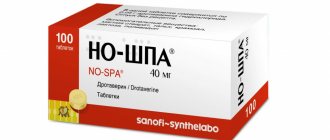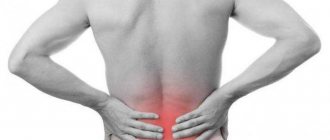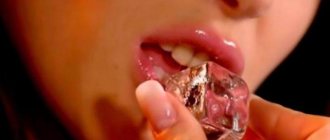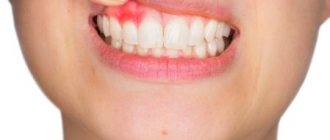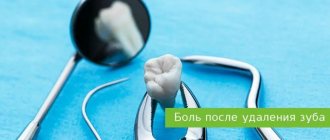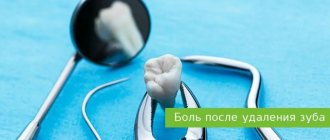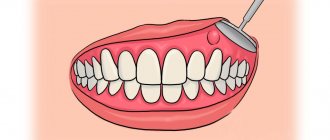If you have a toothache, you want to relieve the pain in any way. It’s good if you can go to the doctor immediately, but if you can’t do this in the near future, what should you do? If you have a first aid kit at hand, it’s already easier: you can pick up a painkiller that will relieve the pain or at least dull it.
Analgin for toothache: how to take
Analgin is perhaps the most popular painkiller in the post-Soviet space. Pharmacies today sell a number of more effective, modern means of reducing pain, but loyalty to analgin remains to this day. This is a cheap, accessible, familiar remedy, which is why it is preferred to many others that have not yet earned such fame.
Analgin for toothache
How does analgin work?
This drug is based on metamizole sodium, this component relieves fever, reduces the inflammatory process and, most importantly in the case of an aching tooth, dulls the pain. Note that it dulls, and does not completely remove. Analgin only partially relieves pain, and if the tooth hurts very badly, the medicine will only dull the pain.
Analgin only dulls the pain
The mechanism of the drug is as follows: it suppresses and also blocks prostaglandins, which are responsible for the occurrence of pain in the body. These are active substances that provoke the inflammatory process and are responsible for transmitting pain impulses to the brain.
The main task of analgin is to relieve fever, and pain relief is only an additional, not the most important function. Therefore, analgin will not cope with acute pain. Interestingly, if the pain is felt more in the periosteum or gum, analgin can be said to be useless.
Today, analgin is by no means the main medicine for acute toothache. It is more reasonable to use it for colds accompanied by fever. And, preferably, as prescribed by a doctor.
Analgin-Darnitsa
Video about Analgin
Pregnancy pills
Pregnancy is the period when a woman should treat herself with the most care and carefully monitor her health - because the condition of her unborn baby directly depends on this. Therefore, even at the planning stage of pregnancy or at its earliest stages, it is necessary to solve all existing problems in the oral cavity. If for some reason this was not possible, you should prepare for the fact that coping with the resulting toothache will be very problematic:
- During pregnancy, and especially in the first and third trimester, it is prohibited to take any highly effective painkillers (it has been scientifically proven that active substances can penetrate the placenta, causing harm to the unformed body of the unborn baby).
- Hormonal changes that invariably accompany the process of bearing a child can lead to the most unexpected consequences - from unexpected destruction of enamel and gum disease to the manifestation of complete immunity to medications.
That is why, among the drugs approved for pregnant women, doctors name only Paracetamol, Nurofen (in the 1st and 2nd trimester), Analgin (in the 2nd trimester), Airtal (in the 1st and 2nd trimester). All of the above drugs can be used in moderation - 1 tablet per day for no more than 5 days in a row.
Severe toothache in pregnant women is best relieved with safe folk remedies (gargle, ice, garlic).
All of the above also applies to the lactation period. At this time, it is advisable to reduce the intake of any medications to zero, since after absorption into the blood they enter the body of the newborn.
Do not ignore preventive visits to the dentist.
It is enough to visit a specialist 1 – 2 times a year, which will allow you to promptly identify any dental problem at an early stage of development. This means that its elimination will be quick, easy and without complications.
By clicking the “request a call” button you agree to the personal data processing policy.
How to take analgin correctly
Applying a tablet to a tooth or gum, as already mentioned, is simply dangerous. Corrosion of the enamel is guaranteed, so you shouldn’t do this even for a couple of minutes. You can just take a pill with water. If we are talking about a child, you can use analgin in suppositories.
Analgin suppositories
Analgin injections are usually given in the hospital, but you can do them at home, provided that someone in your household has the skills for such a medical procedure.
Analgin injection
Many people do not know how to correctly: swallow the tablet completely or chew it directly in the mouth. It doesn't make much difference how you take the product. After the capsule enters the stomach, the composition will dissolve. The active substances of the drug will appear in the blood in about 25-30 minutes until they reach the painful site.
Analgin can be washed down with water or chewed
If we talk about powder, then it acts differently. The pain is relieved quite quickly, but the pain relief effect, unfortunately, will not last long. Therefore, pain relief usually takes place in a complex way: for example, powder and injection. Muscle injections act very quickly, the main thing is to do them correctly.
Analgin should not be abused - a maximum of 4 tablets can be taken per day. But this is a radical measure, and of questionable effectiveness. If your tooth hurts badly at night, it’s easier to get in the car and drive to the nearest hospital, where you will be given an intramuscular injection.
Rules for internal use
When toothache occurs, Analgin can be used in different ways. It all depends on the form of release of the medicine:
- You can take a tablet, in addition you can drink it with water
- Pain can be reduced by applying the tablet to the sore spot
- Injection of solution
- Using rectal suppositories for a child
The most commonly used are tablets or capsules. This form of the drug is easiest to take. However, the period of action will be slightly longer than when used in the form of injections or suppositories. After taking one tablet, the effect begins only after 30-40 minutes. 3-4 doses per day are allowed. It is recommended to take each tablet every 4 hours.
You can apply the tablet to the sore spot. When used this way, the effect occurs almost instantly. However, the effect will be short-lived. Also, do not use if you have caries.
Using the drug in injection form can reduce pain almost instantly. But at home, such use will not always be convenient, because not everyone can give injections. In addition, it will be quite difficult to calculate the dosage.
Can children have analgin?
There is a strict rule - do not self-medicate with children. If, again, there is no way to see a doctor, you can call an ambulance. They will tell you how and what to take while the child is unable to visit a doctor. In the case of analgin, you can give your child half a tablet in the morning and then in the evening, but only if you are sure that there will be no allergies to the components.
You need to make sure that the child is not allergic to the drug
Teenagers over the age of 14 can be given analgin as a whole tablet. Make sure that children do not have access to medications; they must receive pills (just like vitamins, strictly from the hands of an adult).
By the way, there is little point in giving children analgin as a pain reliever. Only if the child complains of pain and nothing else is available. It’s easier to buy special children’s dental drops at the pharmacy (for example, Dantinorm baby). Toothache in infants is not related to pain due to caries or pulpitis. But it can also be alleviated with special means in drops, suppositories, and suspensions.
- Furadonin: indications, contraindications, how to take it correctly
"Dantinorm baby" will help better than analgin
Causes
The reasons for the development of pathology may be the following:
- Tooth injury, mechanical or chemical. Violation of the integrity of enamel and dentin makes the pulp extremely vulnerable to the effects of the external environment and pathogenic bacteria.
- Gum diseases. In this case, there is a high risk of infection entering through open periodontal pockets.
- Complications of caries. Uncured caries or its advanced form contribute to the entry of pathogenic microorganisms - streptococci - into the pulp through the dentin tubules.
- Incorrectly performed dental treatment - damage to dental tissue, opening of a tooth performed in violation of technique, burn of dental tissue by arsenic, etc.
- Incomplete removal of carious tissue during treatment. The infection persists in the dental cavity and continues to develop.
- Poor quality filling installation. It is dangerous because there is a gap between the tooth wall and the filling material. Through it, pathogenic microorganisms penetrate into the pulp.
In what cases is analgin prohibited?
This drug has a solid list of contraindications. Always keep the package insert in the medicine package so that you do not lose these important notes about taking the medicine. Some problems may appear over the years, and you need to check every time whether you can take this medicine given your current state of health.
Analgin has a number of contraindications
For whom analgin is contraindicated:
- children under one year old;
- people diagnosed with aspirin-induced asthma;
- people with bronchial diseases;
- people with digestive disorders;
- patients with anemia and leukemia;
- people suffering from peptic ulcers;
- people with kidney and liver diseases.
It should be emphasized that analgin is a prohibited drug for pregnant women. Neither analgin nor aspirin can be taken for the entire 9 months. Some components of the drug may adversely affect the development of the baby. In the same way, analgin is prohibited during the lactation period, because the aggressive components of the medicine will reach the baby through milk.
Analgin is prohibited during pregnancy
Does analgin have side effects?
Of course, there is, like any medicine. This may include headache, vomiting and nausea, appetite suppression, and nervous overexcitation. Some people feel sleepy after taking the pills, while others experience interruptions in their heart function. Tinnitus, convulsions, and stomach upset may occur.
If side effects occur after taking the drug, you should stop taking the pills and consult a doctor.
If any of the symptoms occur, you should stop taking the drug. Contact your doctor and indicate that your body is reacting negatively to analgin. The doctor will review your case and recommend a drug with a similar effect, but a milder one.
Folk remedies for toothache relief
The most popular folk remedies are also based on rinsing the mouth with a decoction of various herbs, as well as applying various non-heating compresses to the sore tooth.
The most effective rinses are:
| Sage; |
| Oregano; |
| Oak bark; |
| Chamomile decoction; |
| Calendula; |
| A solution of soda, salt and iodine. |
Pain in the teeth is well relieved by compresses or acupressure on the sore tooth. To do this, use tampons or cotton pads soaked in a medicinal solution or containing a medicinal substance. This may serve as:
- Propolis;
- Essential oils;
- Alcohol or strong alcohol;
- Garlic or onion-garlic mixture with salt.
Do not forget about the simplest and surest way to temporarily numb the tooth that is bothering you. Just take an ice cube out of the freezer and apply it briefly to the sore area. The cold freezes and stops all processes, so the pain will subside for a while. Do not apply cold for a long time, as it can chill the nerve endings.
What can you take instead of analgin
As mentioned above, there are enough drugs in the pharmacy today that can relieve pain. But they act more gently than analgin. These medications include: Nimesil, Dolac, Naproxen, Ketorolac, Keterol. True, these drugs cost an order of magnitude more than analgin.
Nimesil
Ketorolac
Pain may also occur after visiting a doctor. For example, if a tooth is removed, the wound may ache and ache for several hours or even the next day. Therefore, there is no need to torture yourself; you can take painkillers. Right at your doctor's appointment, ask what to do if the wound hurts. Usually in this case, Nimesil powders are prescribed, a high-quality and effective drug.
Video: Tablets for toothache
Analgin: reception, help, action
| In what form can analgin be taken? | Tablets, powder (only in the hollow of a decayed tooth), injections, suppositories |
| In what cases will it help? | Caries, pulpitis, cystic formations, pain after tooth extraction |
| When analgin is ineffective | Severe pain, aching gums |
| Can children take it? | Children under one year of age are prohibited; older children should take no more than ½ tablet in the morning and evening. |
| What to replace | Ketorol, Nimesil, Dolac, Naproxen |
- Is it possible to take analgin with papaverine and diphenhydramine at the same time?
Ketorol
Analgin is a medicine, although in demand, but still inferior to more advanced drugs. They have fewer side effects and fewer contraindications. Any painkiller - medicine - is disposable; such drugs cannot be abused. If any side effects appear, you should stop taking the pills. Always at the dentist’s appointment, ask what to drink for toothache, what remedies will be gentle.
Before drinking analgin, consult your dentist
If the pain is not severe, perhaps salt and soda rinses will relieve it, and you will not have to take pills.
Sometimes rinsing your mouth with a solution of baking soda and salt is more effective than taking pills.
Take care of your health! Read our article about the best remedy for teething.
Bottom line
If you have a slight toothache (aching), you can do the following:
- take an aspirin capsule and drink a glass of water;
- give an injection of aspirin solution;
- light candles (for a child);
- drop drops (infant).
In case of severe pain and significant destruction of the tooth crown, crush the tablet into powder, dilute with a drop of water and place in a hollow. If there is an inflammatory process in the gum, place it on the swollen area. In addition to this, you need to take the capsule orally. Then you need to make an appointment at the dental office for treatment.
Painkillers provide only temporary relief, masking the pain syndrome. While taking analgesics, a person does not feel pain, however, pathological processes continue to develop. With repeated use of painkillers, the processes of destruction in tissues can become irreversible, and a person can expect long-term, expensive treatment.
The principle of action of analgesics is based on the relief of pain signals from the site of inflammation to the brain. However, the temporary disappearance of pain does not mean that the body is healing: it needs targeted therapy.
It should be remembered that the simultaneous use of the drug with other analgesics is prohibited: this will increase the toxicity of analgin. This combination of drugs is especially dangerous when treating infants: unforeseen complications may arise.
Sources used:
- Therapeutic dentistry. National leadership / L.A. Dmitrieva. - M.: GEOTAR-Media, 2015.
- Medicines in dentistry. Directory / L.N. Maksimovskaya, P.I. Roshchina. - M.: Medicine, 2001.
- Drugs.com Drugs.com international listings for Metamizole
